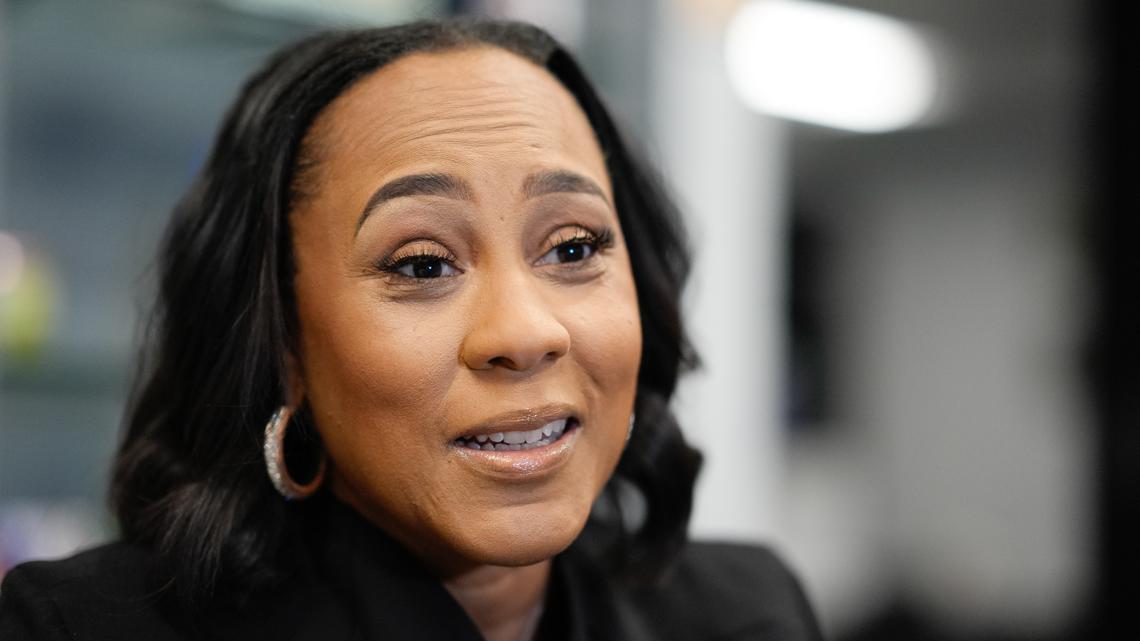Three Justices — Ellington, McMillian, and Colvin — dissented from the decision. Chief Justice Peterson and Justice Land did not participate in the decision.
The decision means that the lower Court of Appeals’ decision in December 2024 disqualifying Willis from the case remains in place, ending her role in the case.
That appellate decision overturned a ruling by Fulton County Judge Scott McAfee that would have allowed her to continue prosecuting the case if special prosecutor Nathan Wade resigned, which he did.
The early 2024 revelation of a romantic relationship between DA Willis and Wade, whom she had hired for the case, derailed proceedings against President Trump and the other remaining defendants.
The Georgia Court of Appeals ruled that Judge McAfee “erred” with his order to resolve the issue of whether the relationship created a conflict of interest in the case.
“The remedy crafted by the trial court to prevent an ongoing appearance of impropriety did nothing to address the appearance of impropriety that existed at times when DA Willis was exercising her broad pretrial discretion about who to prosecute and what charges to bring,” the Court of Appeals order said. “While we recognize that an appearance of impropriety generally is not enough to support disqualification, this is the rare case in which disqualification is mandated, and no other remedy will suffice to restore public confidence in the integrity of these proceedings.”
Willis had argued this was an “an utterly novel application of the standards for disqualification.”
“No Georgia court has ever disqualified a district attorney for the mere appearance of impropriety without the existence of an actual conflict of interest,” Willis argued in an earlier filing. “And no Georgia court has ever reversed a trial court’s order declining to disqualify a prosecutor based solely on an appearance of impropriety.”
Justice Pinson wrote in an opinion concurring with the majority’s decision to not hear the appeal that, “If this question — whether conduct creating an appearance of impropriety alone is grounds for disqualifying a prosecutor — is presented by future cases, we may well need to take it up in one of them. But, in my view, that possibly cert-worthy question is not presented by this case, at least not as it appears before this Court.”
Following the state Supreme Court’s decision to let the appellate decision stand, defendant Michael Roman’s attorney Ashleigh Merchant shared this statement with the 11Alive Political Team.
“This case has always been exceptional in how it was handled which is why it demanded such an extraordinary remedy,” she said. “The lapses in judgement and the inability to accept responsibility for those lapses has infected this case from its inception. We hope this will finally close this chapter.”
Steve Sadow, President Trump’s lead attorney, also weighed in Tuesday morning.
“This proper decision should bring an end to the wrongful political, lawfare persecutions of the President,” he said.
Not all Justices agreed with the majority’s decision not to hear the appeal. In a dissenting opinion, Justice McMillian wrote that “the legal issue necessarily presented here — whether an attorney can be disqualified based on the appearance of impropriety alone — affects every single active lawyer in the State of Georgia.”
She argued the Court should have heard the appeal in order to resolve lower court decisions “in conflict” with each other. Justices Ellington and Colvin joined that dissent but were unable to persuade a majority of the Justices of their perspective.
Justice Pinson, concurring with the majority, articulated that Willis’ decision not to cross-appeal McAfee’s ruling amounted to “taking as an unchallenged given both the trial court’s finding of a significant appearance of impropriety and that some kind of disqualification remedy was required to cure the harm caused by the prosecutors’ conduct.”
Thus the only question for the state Supreme Court to settle would be whether the Court of Appeals was wrong in determining McAfee “erred” with his “one of you has to go” (as Pinson coined it) remedy for the appearance of impropriety. The state Supreme Court found there was no reason to review that narrower question.
“In short, rather than deciding any broader question about whether an appearance of impropriety can serve as an independent ground for disqualification of public prosecutors, the Court of Appeals’ decision appears to have resolved a narrow, case-specific dispute about the trial court’s choice of disqualification remedy,” Pinson wrote. “If that’s the best reading of the Court of Appeals’ decision — and I think it is — that decision does not raise a question of gravity that warrants our further review.
“The question whether a trial court abused its discretion in choosing a particular disqualification remedy under the specific and unusual circumstances of this case is not a question of Georgia law at all likely to arise in future cases.”
The Georgia Court of Appeals did not, however, throw out the whole case, as defense lawyers for President Trump and his co-defendants had sought.
But in upholding the appellate court’s ruling disqualifying Willis and her office, the future of the election interference prosecution is thrown into serious jeopardy. Former DeKalb County DA Robert James told 11Alive last December the case would be transferred to the jurisdiction of the Prosecuting Attorneys’ Council of Georgia.
It would be up to that third-party organization to assign a new prosecutor to take over the case — who would have autonomy to review the entirety of the case.
“There’s no prosecutor’s office in the state of Georgia that’s going to get a case of this magnitude, of this import, and not say ‘listen, we’ve got to tear it down to the studs and look at everything and make a determination of what we should go forward on and what we shouldn’t go forward on,'” James said.
